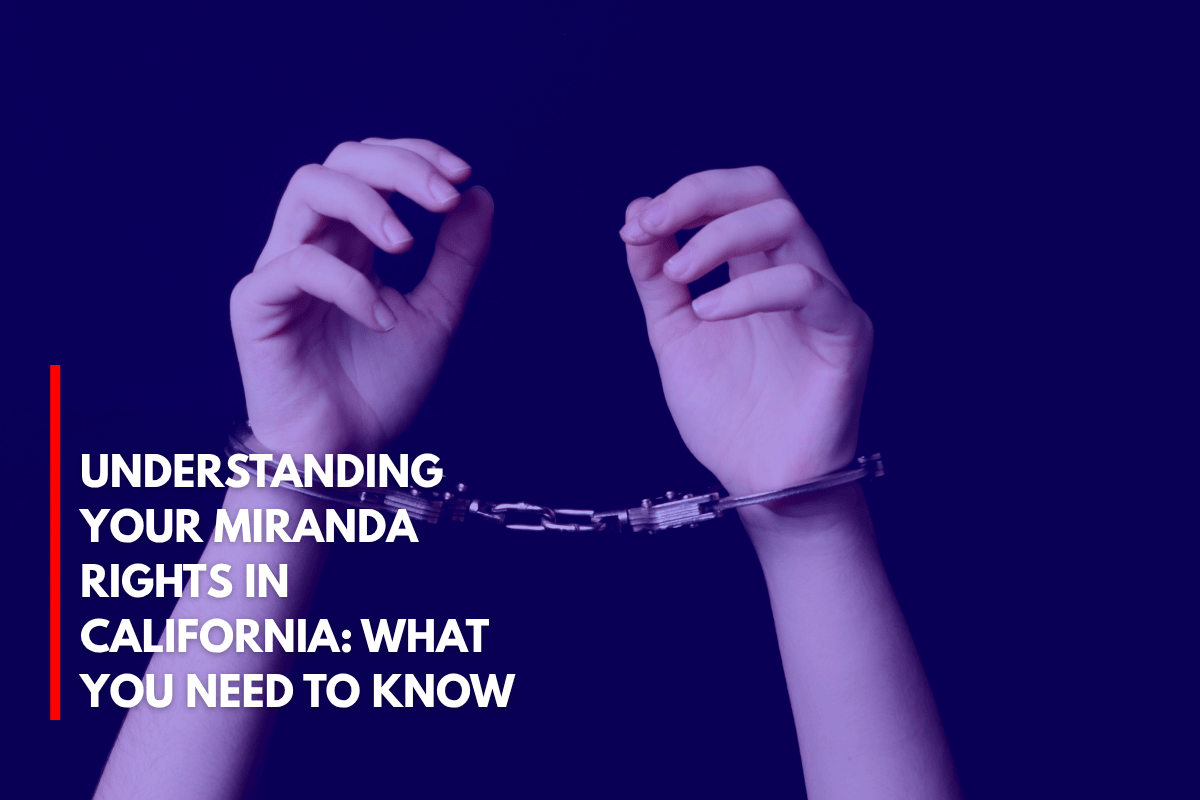Understanding your Miranda rights in California is crucial if you are ever arrested or detained by law enforcement. Here’s what you need to know:
What Are Miranda Rights?
Miranda rights are a set of legal protections that police must inform you of after your arrest and before questioning you while in custody. These rights originate from the landmark 1966 U.S. Supreme Court case, Miranda v. Arizona.
The court ruled that failing to inform suspects of their rights before custodial interrogation violates the Fifth Amendment (right against self-incrimination) and Sixth Amendment (right to counsel) of the U.S. Constitution.
The standard Miranda warning includes:
-You have the right to remain silent.
-Anything you say can and will be used against you in a court of law.
-You have the right to an attorney.
-If you cannot afford an attorney, one will be provided for you at no cost.
-Police must ensure you understand these rights before proceeding with any interrogation.
When Must Police Read You Your Miranda Rights?
Police are required to read you your Miranda rights after you have been arrested and before they begin questioning you while you are in custody. This does not mean you must be read your rights every time you interact with police—only when you are both in custody and subject to interrogation.
Situations where Miranda rights are not required:
-General questions (name, address, date of birth) during booking.
-Traffic stops (unless you are taken into custody and interrogated).
-Public safety emergencies (e.g., locating a weapon).
-When police use informants to talk to you while you are incarcerated.
What Happens If Police Fail to Read Your Miranda Rights?
If police fail to properly inform you of your Miranda rights before custodial interrogation, any statements or confessions you make may be inadmissible in court. This is known as the “exclusionary rule,” which can significantly weaken the prosecution’s case.
However, not reading Miranda rights does not automatically result in the dismissal of your charges—it only affects the admissibility of statements made during the un-Mirandized interrogation.
Exceptions and Limitations
Public Safety Exception: If police ask questions to address an immediate threat to public safety, evidence obtained may still be admissible even if Miranda was not given.
Tangible Evidence: Physical evidence discovered as a result of un-Mirandized statements may sometimes still be admissible, especially if it would have been found anyway (inevitable discovery).
Impeachment: If you take the stand and your earlier un-Mirandized statements contradict your testimony, those statements may be used to challenge your credibility.
What Should You Do If You Are Arrested?
-Invoke your right to remain silent and request an attorney immediately.
-Do not answer questions or make statements to police without your attorney present.
-If you believe your Miranda rights were violated, inform your lawyer—they can seek to have any improperly obtained evidence excluded from your case.
Summary Table
| Situation | Miranda Rights Required? | Notes |
|---|---|---|
| Arrested and interrogated | Yes | Must be read before questioning |
| Traffic stop (not in custody) | No | Only if taken into custody and interrogated |
| Booking questions | No | Routine questions only |
| Public safety emergency | No (exception) | Evidence may still be admissible |
| Informant talks to you in jail | No | Not considered police interrogation |
Key Takeaways
-Miranda rights are your constitutional protections against self-incrimination and for legal counsel.
-Police must read you your rights after arrest and before custodial interrogation.
-Failure to do so can result in evidence being excluded from court, but not necessarily dismissal of charges.
-Always invoke your right to remain silent and request an attorney if arrested.
If you have questions about your rights or believe your Miranda rights were violated, consult a criminal defense attorney in California immediately.
Sources:
- https://www.egattorneys.com/miranda-rights-violations-california
- https://www.mirandarightslawfirm.com/miranda-rights-violation/
- https://www.gorelick-law.com/miranda-rights
- https://www.simmrinlawgroup.com/faqs/what-are-miranda-rights/











Leave a Reply